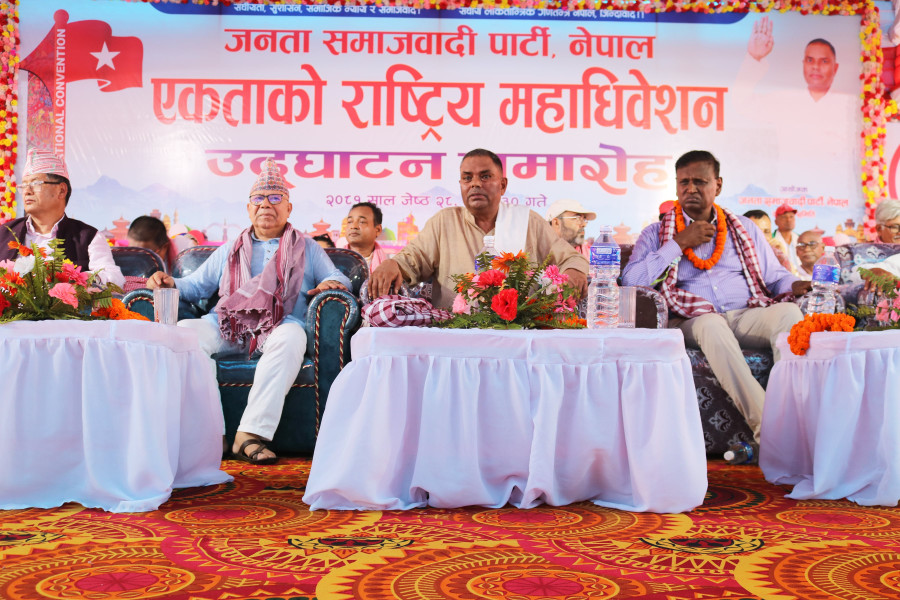Editorial
Chart your own path
It is unfortunate to see lack of internal democracy in newer outfits like the Janata Samajbadi Party-Nepal.
The Janata Samajbadi Party-Nepal inaugurated its second general convention on Monday. The Upendra Yadav-led party is holding the mega event at a time the party has suffered multiple setbacks. Seven of its 12 federal lawmakers split the JSP-Nepal and registered a new outfit—Janata Samajbadi Party—at the Election Commission last month. The party of Upendra Yadav, who headed the party that had continuously led Madhesh provincial government since 2018, has been pushed to the opposition bench in the provincial assembly. Yadav, who was deputy prime minister and health minister in the Pushpa Kamal Dahal-led Cabinet until last month, has been ousted from the federal government as well. Despite such adverse circumstances, Yadav is poised to be the party chief again, most likely unopposed.
Yadav rose to power after successfully spearheading a Madhesh movement in 2007 demanding rights for the historically marginalised Madheshi people. Though the demand for federalism had been raised by various quarters even in the past, it was Yadav-led agitation that eventually forced the Nepali state to introduce the federal system in the country. He formed Madheshi Janadhikar Forum-Nepal under his own leadership. Since then he has always been at the helm of a party. He has merged his party with various outfits, multiple times, only to split again.
With the rise of Madheshi parties in the aftermath of the second people’s movement in 2006, people—not only from the southern belt of the country but also from most marginalised communities—had high hopes for a paradigm shift in Nepali politics. The big parties traditionally holding power, namely the Nepali Congress and the CPN-UML, had felt pressure. But within years of their joining governments in Kathmandu, people were disenchanted by their performance. A section of people expected that the regional parties would do better when allowed to lead provincial governments. They failed in the province as well.
In Nepal, communist leaders and parties have been infamous for persistent disputes and divisions, mostly after the 1990 political change. When parties mushroomed in Madhesh, they beat the communists in terms of infightings and divisions. There is not a single party in Madhesh that remained intact, which is disappointing for those who expected that regional forces would build pressure on traditional forces through better delivery.
Mismanagement, lack of organisational discipline, non-transparency and top leaders’ monopoly in decision-making have become common traits of Madhesh-based parties. Big parties such as the Congress, the UML and the Maoist Centre are criticised for being monopolistic and rather undemocratic. But, newer forces proved themselves worse. For instance, at least the big parties have been holding their general conventions as per the constitutional provision. Their provincial, district and village units are also elected through a process. For example, the UML is now electing its district leaders through conventions. When they fail to pick leaders in consensus, they readily go for a vote. Top leaders may favour those loyal to them but even these loyalists must nonetheless follow the process. That is why the UML is considered the most organised party in the country. The Congress also follows at least basic democratic norms while electing its leaders and making important decisions. But we don’t see the same in Madhesh-based and other newly emerged forces. This is unfortunate.
Only political parties that are well-organised, democratic and transparent in their activities will have the moral strength to mount pressure on big forces. Those who can’t maintain democracy and transparency in their own organisations can’t ensure it in the government when they come to power. We hardly find any leader in Madhesh handing over party leadership to other leaders through a democratic process. We hope that in the ongoing convention Yadav’s JSP-Nepal can bring policies to make the party organisation more transparent and democratic.




 13.12°C Kathmandu
13.12°C Kathmandu














